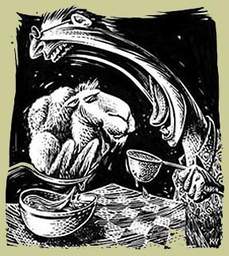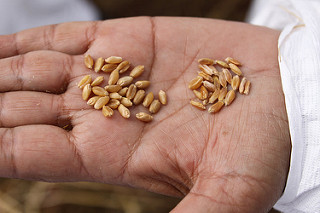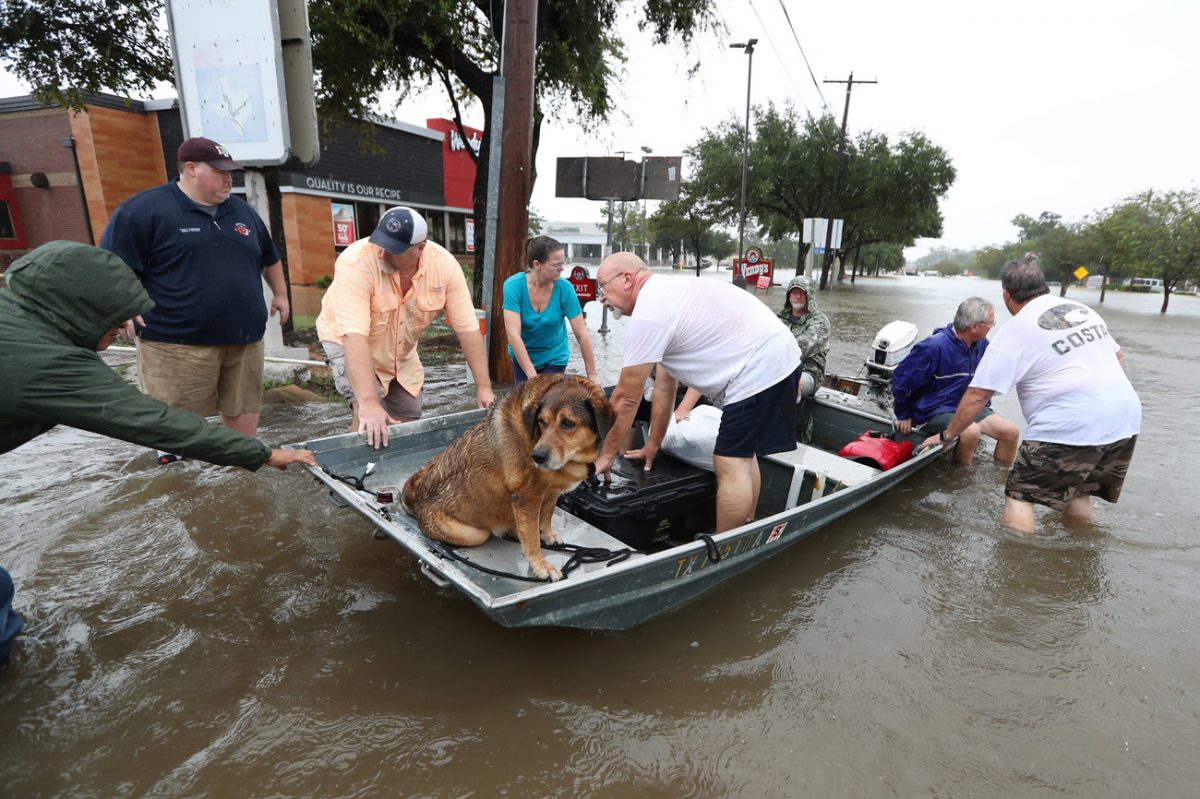Background Passages: Mark 2:1-12 and Luke 5:17-26
In a world where so many people are hurting, it’s difficult to understand why there are so many empty pews in our churches. Many people blame organized religion for its lack of compassion and concern. Perhaps the fault lies not in the institution but in our individual response to God’s call for ministry and service.
The world seeks help for its problems, but no longer trusts the church to be its answer. When it tries, the world tends to ridicule our efforts, painting them with unintended ulterior motives. As a result, many well-intentioned Christians no longer make the time or effort to heal the brokenness they see in their families, friends and community.
We can learn a valuable lesson from a familiar story in Scripture about what it means to take the initiative in meeting the needs of others and persistently breaking through the barriers that prevent us from doing what we are called to do. Mark and Luke both share an early account of Jesus healing a paralyzed man in Capernaum.
*****
When Jesus taught, people noticed a difference between the words he shared and the hollow recitations cited by the religious leaders of the day. With Jesus, they sensed vitality and life…an authenticity and authority to his teaching that was lacking in the synagogues. Couple his unique teaching with the miracles he shared with the needy and the hurting and Jesus became a national celebrity.
Jesus’ reputation as a master teacher and miracle worker spread across Galilee and Judea like wildfire, prompting people to leave their homes to hear him teach and see him work. Drawn by his compelling words of truth and the hope of healing, crowds followed Jesus wherever he went.
On this particular day, Jesus was invited to teach in a home in Capernaum. It didn’t take long for word to spread. They came from Capernaum and throughout Galilee to hear him speak. Others who had journeyed from Judea, including a group of religious leaders from Jerusalem, caught up to him in this seaside village. As the day progressed, Jesus found himself teaching to a standing-room-only crowd.
The Pharisees took the choice seats in the house where Jesus taught. The rest of the people packed into every nook and cranny, blocking the doorway and leaning in windows trying to catch his words. The crowd eventually spilled out into the street outside, making it impossible for anyone else to get close enough to hear.
Four men traveled for days between villages, constantly following the rumors of Jesus’ location, only to find that he had moved on by the time they arrived. They carried a litter between them, bearing a friend whose body was broken and paralyzed, unable to lift even a finger.
Hearing so much about Jesus’ ability to do the miraculous, they had to get their friend before the great healer. They knew Jesus was their friend’s only hope. As they entered Capernaum, there was a buzz in the town. Jesus was here, teaching in a house near the sea.
Moving through the twisting streets, they followed the crowd to the place where Jesus was teaching. The press of the crowd so great and the people so inconsiderate the men could not get anywhere near the door. Each time they tried to get close they were pushed and shoved to the back of the crowd.
They laid their friend underneath a tree and sat beside him, full of disappointment and despair. One of them kept looking at the house, noticing that they could reach the stairs to the roof. Again picking up their friend, they climbed the steps to the roof of the house. With sticks and fingers, they began to chip away at the mud-covered branches. They work until their fingers began to bleed and they dug some more.
At last, one of them managed to get his hand through the roof. They increased their effort with renewed hope. If they could just get the hole big enough they could lower their friend into the room where Jesus sat.
Inside the room, an arrogant Pharisee looked puzzled and irritated as he brushed the dirt from his sleeve, looking angrily at the ceiling. Jesus, for his part, kept teaching with one eye on the ever-expanding hole above his head.
Finally, even Jesus had to stop what he was doing, the hole and the frenzied activity too great to ignore. With effort, the men began lowering their paralyzed friend by rope into the room until he was resting at the feet of the healer. Perspiring and covered in dirt, they peered into the hole they created and shared the man’s story with Jesus, begging him with such sincere words to heal their friend.
To the chagrin of the religious leaders whose brightly colored robes were flecked with dust and twigs, Jesus acknowledged the great love of these four men who sacrificed their time and energy for their helpless friend. Compassion poured from Jesus’ heart as he knelt beside the stricken man. Nodding in approval of the faith they demonstrated and addressing the man’s deepest need, Jesus held a quiet conversation with the paralyzed man before laying his hand upon his chest in prayer and telling him his sins were forgiven.
The Pharisees muttered to one another in their dusty robes, denouncing Jesus privately for his blasphemy.
“Why does this fellow talk like that? Who can forgive sins but God alone?”
Without hearing their words, Jesus knew their hearts. Never allowing his eyes to leave the man resting on the cot, Jesus responded to their thoughts.
“Which is easier? To say to this paralyzed man, ‘your sins are forgiven,’ or to say, ‘Get up, take your mat and walk?”
After a moment his eyes bore into the hearts and souls of the religious leaders until they cringed under the intensity of his gaze. “I want you to know the Son of Man has authority on earth to forgive sins.”
With a deep breath, he paused and prayed. Then, he smiled at the four men poking their heads through the hole in the roof and extended his hand to the paralyzed man. “Get up,” he said as he pulled him to his feet. “Take your mat and go home.”
Every miraculous healing pointed to the power of God demonstrated in Jesus. For anyone paying attention, each act of healing was proof conclusive of God’s power within him. The people left the home amazed at all they had heard and seen.
*****
The story reveals a lot about Jesus. Like the Pharisees we have much to learn about the power and authority we can find in him. But, I find a more personal message in this cherished story demonstrated by the faith of the four friends.
The accounts of this story we find in Mark and Luke are almost identical. Almost word for word. But Luke, the physician, uses a phrase that Mark does not include. Luke wrote this about Jesus,
“And the power was in him to heal the sick…”
On a day when the Holy Spirit was filling Jesus with great power, there was no one present who needed his help. Jesus’ audience that day consisted of people who loved to hear Jesus teach. There were present also a few religious leaders who felt a little threatened and challenged his every word. Yet, other than this one who was brought to Jesus by four wonderful friends, there is no mention of others who were present in need of healing.
On nearly every other occasion where Jesus taught the crowds, we read about the sick, blind, disabled and demon-possessed so desperately in need of Jesus’ touch. But not this day. Given what happened to these four men and their paralyzed friend, we can surmise that many of the sick and helpless were sent away, pushed to the periphery of the crowd. They were not invited inside.
So, despite having the power in him to heal the sick, there was no one present for him to heal…until four men traveled a great distance and refused to go away. I find that moment when they climbed on the roof instructive for my life as a Christian.
Could it be churches have empty pews because we don’t take the initiative to reach out to those in need and bring them to Jesus? Could it be that we find reasonable excuses to disregard the needs of others?
You see, faith demands that we take initiative to bring others to Christ. It wasn’t as if these four friends lived next door to the house where Jesus taught. The scripture implies that the paralyzed man and his friends journeyed over time and distance until they caught up with Jesus. It was an exhaustive effort to carry their friend across hill and valley to reach Jesus.
They didn’t wait for Jesus to come to their village. They didn’t send a messenger begging for Jesus to come for a visit. They didn’t wait for Jesus to just happen by. They didn’t simply tell their friend to find his own way to Jesus. They dropped what they were doing. They picked up the bed and they carried their friend to Capernaum and cared for his needs along the way.
What could happen in our churches if we took the initiative to bring others to Christ? To be enough of a friend to pick up the litter and carry it over time and distance until our hurting friend found the spiritual healing he or she needed and desired. Faith requires us to take the initiative to bring the lost and hurting to Jesus. Faith without service is no faith at all.
There is more to learn in the example of these four friends.
Could it be that churches have empty pews because Christians give up when challenged? Could it be that those who need our help get turned away at the door because we would rather just listen to God’s word than live it?
When these four friends arrived at the house they found every natural entrance blocked by the crowd. Carrying a paralytic and pushing through the unyielding wall of humanity proved impossible. It seemed they had come all that way for nothing.
They could have blamed the unsympathetic crowd. The poor choice of venue that didn’t allow enough people inside. They might have even blamed the paralyzed friend for hurting himself in the first place. When faced with the obstacles, they could have simply gone home. Their faith would not allow them to give up so easily.
Instead, they refused to let the obstacles stand in the way of the healing their friend needed. They found another way. They climbed to the roof and dug in.
You see, sometimes faith requires us to carry the litter to the roof and start chipping away at the dirt and branches until the hole is big enough to let us lower a hurting soul at the feet of our Lord. Faith demands persistence.
Persistent faith digs through a roof. Persistent faith wraps a rope around our hands to bear the weight of those in need. Persistent faith often leaves us with dirt on our faces, cuts on fingers and rope-burned hands.
Yet, this much is true. When we take the initiative to bring others to Christ and when our faith is persistent in pushing through every obstacle that might prevent us from introducing others to our savior, good things will happen. We will find the power of Christ available to heal and help those in need.
What would happen to the empty pews in our churches if we took the initiative to introduce the world to Jesus? What would happen to the empty pews in our churches if we never gave up or gave in to the obstacles and distractions that stand in the way of ministry and service.
I suspect we might have a hard time finding a place to sit…and that would be just fine.






